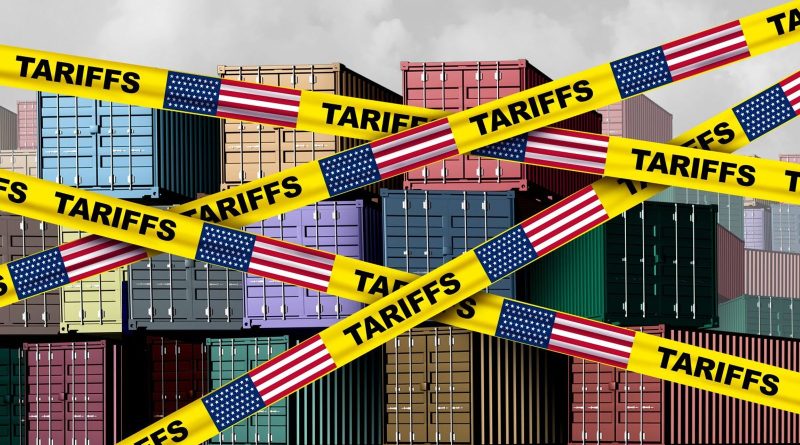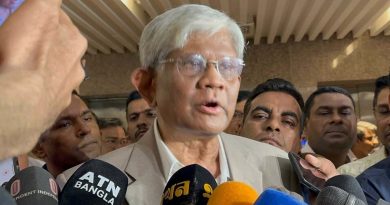Time is running out—and in trade diplomacy, delays come with a heavy price. Bangladesh is now on the verge of facing that cost as the United States prepares to implement a new, sharper tariff regime starting August 1, 2025. What began as an opportunity for recalibration has nearly slipped into a crisis of inaction.
In April, the Trump administration announced steep tariffs on imports from countries with large trade surpluses against the US. Bangladesh made that list. But the announcement also carried a window for negotiation—one that other nations seized.
Vietnam moved decisively, lowering tariffs on US goods within days to demonstrate its willingness to balance trade. In return, it secured a preferential tariff rate of 20%, the most favourable outcome so far. Bangladesh, however, opted for delay—asking for 90 days and doing little in that time to alter its trade posture.
Now, with just hours left before the deadline, Bangladesh finds itself unprepared and negotiating from a weaker position. Other countries like Indonesia, Cambodia, and Tunisia, though still awaiting final decisions, have been far more proactive—meeting allies, engaging policymakers, and leveraging every diplomatic and commercial tool available. Bangladesh, in contrast, has remained largely reactive.
This must change—immediately.
The Window for Damage Control Is Narrow
There’s still time to soften the blow. A well-calibrated move to import $2–3 billion worth of strategic US goods—agricultural machinery, aviation technology, LNG, medical equipment, and ICT devices—could help rebalance the ledger. These are not token purchases. They align with our own national needs in energy, health, food security, and industrial productivity.
More importantly, such imports could anchor a long-term trade strategy that reflects mutual benefit, not crisis-driven patchwork. A regular, dependable pipeline of necessary US imports—matched against the scale of our exports—would build trust and resilience in bilateral trade.
Steps Taken: Welcome but Late
To its credit, the government has made a few strategic moves. The purchase of 25 Boeing aircraft sends a clear signal of intent to narrow the trade gap. A delegation led by Commerce Adviser Sk Bashir Uddin is currently in Washington, holding discussions with US officials and private sector players—a late but necessary push into economic diplomacy.
Earlier agreements to import 220,000 tonnes of US wheat, with a potential five-year supply deal for up to 700,000 tonnes, also show progress. But these initiatives must form part of a cohesive, fast-moving trade recalibration, not scattered gestures.
Stakes Are High: RMG, Remittance and Reserves
This issue strikes at the heart of Bangladesh’s economic stability—ready-made garments, our top export, and the US market, our largest single-nation buyer. Any dent in our competitiveness there could ripple across the entire economy: weakening foreign exchange reserves, stalling imports, and shaking investor confidence.
This is more than a government problem. Exporters, trade economists, and business leaders must have a seat at the strategy table. They know where the friction lies—be it margins, logistics, or geopolitical sensitivities—and their insights are critical.
Engage Washington, Not Just From Dhaka
Winning this negotiation requires more than memos. It demands presence, persuasion, and political intelligence. Bangladesh needs its diaspora professionals, experienced lobbyists, and diplomats familiar with Washington’s inner workings, especially under a Trump administration, to lead these talks.
There’s an edge Bangladesh holds that few others do: most of our export industries are locally owned. In an era when the US is wary of Chinese transshipment, Bangladesh can credibly demonstrate the origin authenticity of its goods. That’s a competitive advantage we must leverage, now.
Alternatives? Not Viable—Yet
Some have floated the idea of pivoting to BRICS or regional markets. But those avenues remain bureaucratic, tightly protected, and lack the scale and openness the US market offers. The Gulf is wealthy, but its demand base is too narrow to replace America’s.
The United States remains the world’s most accessible, high-volume export market. Pulling back now is not an option—it is a risk the economy cannot afford.
Final Hours, Final Chance
We are already late to the table. Let us not miss the table altogether. There are still days—perhaps hours—to shape the outcome. A smart, coordinated, and bold effort could still lower the looming 35% tariff, or at least soften its blow.
Donald Trump is known to play hardball. But he also respects bold, calculated moves. If Bangladesh wants a seat at the negotiating table, it must bring strategy, speed, and substance—not delay.
This is not just trade policy. It’s economic survival.






